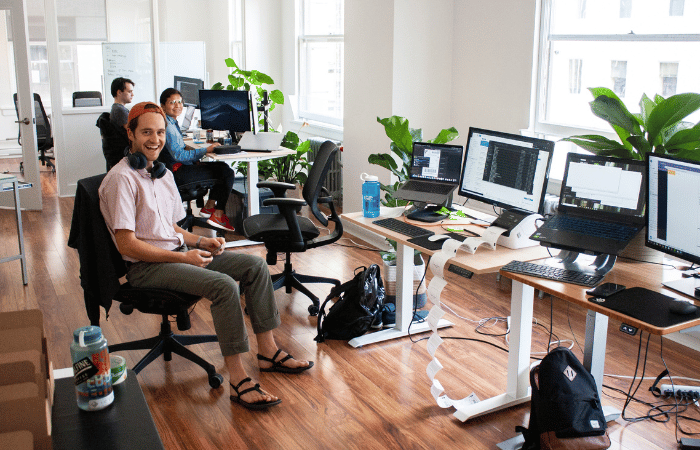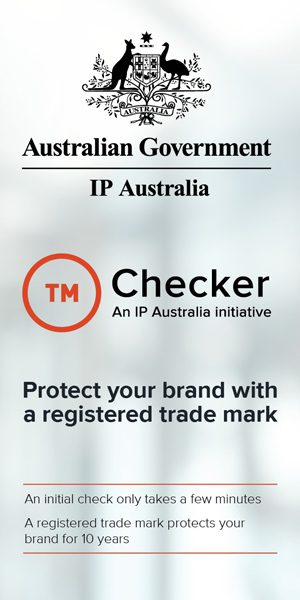Despite a deepening tech wreck Victoria is now home to 19 “unicorns” – billion dollar tech businesses – and the state-run start-up agency LaunchVic has chosen nine potential future billion-dollar businesses to be mentored by the likes of Atlassian and Uber as part of a bootcamp program.
The 30×30 program will bring in executives in HR, operations and finance from tech giants like Dropbox, Seek, Atlassian, Canva and Uber, who will mentor the nine selected start-ups and help steer their next steps.
The chosen nine start-ups
• JET Charge – Australia’s leading EV charging infrastructure and technology company.
• Preezie – specialises in eCommerce solutions that drive customer acquisition and enable guided experiences.
• Thriday – an all-in-one business financial management platform.
• Intelligence Bank – The leading innovator in marketing operations and compliance.
• Halaxy – a global healthcare platform for practitioners, patients and consumers that makes healthcare efficient, effective and accessible for everyone everywhere.
• Fourthrev – empowers learners for high-growth digital careers.
• Vendor Panel – Australia’s most-awarded ProcureTechsolution. It simplifies procurement and drives positive impact.
• XY Sense – offers real-time occupancy intelligence for workplace teams, with AI powered sensors and analytics platform, worldwide.
• Great Wrap – a material science company on a mission to end human reliance on plastic
Preezie, which to date has raised $6.5m in funding, has avoided lay-offs plaguing other start-ups according to its co-founder Michael Tutek.

Preezie is exploring the potential for a fund raise in the second half of this year, Mr Tutek said. His company, which has customers including JB Hi-Fi and Target, lets retailers collect first party customer data and personalise interactions to drive sales.
The Australian first reported this week that the start-up sector is reporting the lowest amount of funding since before the pandemic, and the fewest number of deals since 2019.
Research from Cut Through Ventures suggests valuations in later-stage private start ups have fallen by up to 50 per cent, which in some cases would mean billions of dollars wiped from market capitalisations.
“In light of the recent round of redundancies across the tech sector, we’re aiming to buck the trend and steer our company towards growth,” Mr Tutek said.
“We have recently released a new product, nextbuy, which is a brand-to-brand affiliate network. With this and our expansion to the US, we believe the 30×30 program will help us reinforce our focus on human resources and operational excellence.
“For us, this program is going to be like a cheat code for scaling up. It will offer unparalleled access to training, mentorship, and networking opportunities that are typically challenging to acquire independently. The cohort model enables us to workshop real-life situations, leveraging the experiences and expertise of one another.
“Being away from the Sydney spotlight has also allowed us to experiment with new ideas and take a more creative approach when it comes to engaging with our customers.”
LaunchVic chief executive Kate Cornick said that for every high-value start-up job, it is estimated that five more jobs are created in associated service sectors in the broader economy.
She remains optimistic for the sector despite the widespread lay-offs and economic uncertainty.
“We cannot overstate the impact of the current economic climate and the ability to access capital which is now much harder than it was two years ago,” Dr Cornick said.
“For this reason, all start-ups need to ensure they are positioning themselves as well as they can to attract capital, and for our scale-ups this means making sure every facet of the business is operating as well as it can.
“Scale-ups typically have product market fit, but it is often back-office operations like HR, finance and operations that prevent the company from growing to their highest potential and can lead to failing … this is why 30×30 is so important.”
Many unicorn founders would often reinvest in ventures in the local ecosystem, Dr Cornick said, such as Aconex chair Leigh Jasper, Paul Bassat from Seek and Carsales’ Greg Roebuck who have all ploughed money into the sector.
“Executives from a unicorn often go on to start their own start-up venture, and are often very generous with their time and their learnings and what they give back,” she said.
“Victoria’s start-up ecosystem is positioned to become one the most important sectors of our economy and this will ensure Victoria is well placed into the future as a leading economy.”
Source: Fintech Australia
Also read: Brain-computer interface: 3 Companies to check out
















